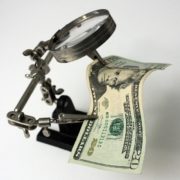The longstanding historical and diplomatic ties between the Philippines and the United States have made it to the forefront of international and local news headlines in light of President Duterte’s quest to once and for all build a new Philippines—a nation no longer ravaged by drugs, corruption, violent and petty crime, and foreign hegemony.
Within this global media storm that President Duterte has found himself in—partly to his own rather poignant choice of words and actions, has foreign governments, the United Nations, human rights organizations, to millions of ordinary netizens (both globally and locally) chiming in—debating whether or not economic development takes precedent over human rights violations.
Indirectly included in this conversation are the nearly 10 million Filipinos throughout the world who now find themselves in a precarious position—having to either defend, criticize, or even fight President Duterte because of the effect this has not only on Filipino race relations throughout the World, but in addition to individual personal and professional interests in the Philippines—and you need not look any further than your own Facebook or Twitter newsfeeds or in the comments section of news articles to understand the polarizing viewpoints on President Duterte.
How the President and the Philippines is viewed globally is critical to the country’s economic growth especially since labor is the country’s biggest export, international tourism has significantly increased over the past few years (and created thousands of jobs nationwide), the tremendous emergence of providing multinational corporations with business process outsourcing services (which is now the biggest in the World over India), and lastly the steady economic growth and climb of foreign direct investment which has outperformed neighboring Asian countries.
Like any war, collateral damage is inevitable—from innocent people being killed to a stagnating economy. However, do the ends justify the means? Here are several things to be considered for the next 6 years of President Duterte’s term. Is it even possible for a country to truly detoxify itself from decades of habitual, systematic criminality by overlooking due process, extra judicial killings, and moral high ground? Is it justifiable to halt present and steady economic growth in the name of future growth, security, and presumptive prosperity? Do drugs actually kill more people and play a prominent role in perpetuating poverty? What developed or developing country doesn’t have human rights violations—historically, does such a country actually even exist? And finally, factoring in the overall picture, is President Duterte actually justified especially with his 91% approval rating in the Philippines?
Let’s take a closer look.
“For the haves, don’t you dare change a thing. For the have nots—change everything.”
Often argued in political debates regarding economic development is whether to separate human rights issues altogether and to make economic development a singular topic on its own. Through countless research spanning multiple decades coming from the United Nations to hundreds, if not thousands of international private think-tanks indicates that human rights are highly correlated with economic development and are more often times than not, actually precursors for it.
For extrajudicial violence and a lack of due process which are human rights violations, citizens may view it as simply a matter of good vs. evil. This in turn, is what drives a country to explode into personal action—citizens begin taking matters into their own hands against those perceived as criminals. Once the violence has started, it can be quite difficult to stop.
Extrajudicial violence is largely a result of a society’s complete lack of trust and confidence in a government’s ability to enforce laws—an ineffective government which is mired by rampant, systematic corruption—that’s why this subject is rather tragic. In an interview with the New York Times, Phelim Kine, the Deputy Director of the Asia Division at Human Rights Watch said, “The fact is that the judicial system, the court system, is broken in the Philippines…When you factor in elements of corruption, and perceptions that people can buy themselves protection from the police or buy themselves out of trouble, this adds up to a lot of frustration among Filipinos who sense that government and the judicial system is part of the problem, not the solution.”
Further, based on survey data and research from Latin America on extrajudicial violence, people who have little faith in government institutions were more likely to say that vigilante violence is justified. In contrast, citizens who live under strong governments and a well-respected law enforcement would strongly condemn vigilantism. As a result of this, citizens cannot believe in institutional reform because it was the institution that created the problems to begin with. Hence, President Duterte’s actions are largely favored by the people he serves since he has exploited the sentiment of the citizens—do whatever it takes to solve the nation’s problems. Over the past decade, according to the Philippine Statistics Authority, crime solution efficiency or the percentage of crimes solved out of reported crimes was at almost 90% in 2004. In 2013, it was at a staggering 29%.
 Analyzing Singapore’s late Prime Minister, Lee Kuan Yew’s economic policies, in its simplest form, test whether or not the political system improves the standards of living for the majority of people and if they are safe and free—Is a woman free to walk late at night? Are people free to leave their doors open without the fear of burglary? Do they have clean water? And is quality health care and education readily accessible for all?
Analyzing Singapore’s late Prime Minister, Lee Kuan Yew’s economic policies, in its simplest form, test whether or not the political system improves the standards of living for the majority of people and if they are safe and free—Is a woman free to walk late at night? Are people free to leave their doors open without the fear of burglary? Do they have clean water? And is quality health care and education readily accessible for all?
Today, and for a few decades running, Singapore is one of the world’s leaders in GDP per capita income and economic freedom. Yet, is Singapore’s government system of laws a pure democracy? The short answer is no and many people describe the government is largely autocratic. According to the Human Rights Watch organization, they cite Singapore as, “The government limits rights to freedom of expression, assembly, and association using overly broad legal provisions on security, public order, morality, and racial and religious harmony. It punishes critics by using defamation laws and the archaic offense of “scandalizing the judiciary,” requires a police permit for any cause-related gathering, and limits public speaking or rallies to a single designated area…Corporal punishment by caning is a mandatory additional punishment for a range of crimes. LGBT people still face systematic legal discrimination.” But, what Filipino in their right mind wouldn’t wish the Philippines was an economic superpower like Singapore?
Yet the question remains, is the purge in the Philippines justified in the name of economic developmental progress? And unfortunately, you can’t have one without influencing the other. Still to this day, the most technologically advanced and economically developed democratic nation, the United States has come under fire with recent police officer shootings of African-Americans. Human rights violations happen all over the world everyday and it doesn’t matter if you are living in a developed, developing, or underdeveloped country—from Israeli settlements in Palestinian land, Europe and the refugee crisis, and human trafficking that is alarmingly rampant across Asia to just name a few.
The Philippines is hardly alone in the global war on drugs. And the Philippines is not the first country to execute people for drug related crimes—judicial or otherwise—this is actually prevalent throughout the world. According to the 2015 report by drug policy NGO Harm Reduction International, since 2010, Singapore, Indonesia, Vietnam, China, Malaysia, Iran, and Saudi Arabia have all executed drug traffickers. In Thailand’s 2003 war on drugs, under then Prime Minister Thaksin Shinawatra, more than 13,000 arrests, 36,000 surrenders to the police, and nearly 1,200 deaths occurred in just his first month. A few decades prior to that, Indonesia waged its own war on drugs. From the period of 1983 to 1985, thousands died in the name of crime reduction and economic development—20 years later, Indonesia is a global economic force. So are the criticisms of foreign heads of state fair or foul against President Duterte?—especially since crime reduction was at the very core of his presidential campaign—winning nearly 40% of the vote.
Examining the key synergies between economic development and human rights, it is abundantly clear that the two are impossible to disconnect. Factoring in law and history, however, when people are denied their rights, it results in social instability or even war which have enormous economic consequences—which have lasting effects on present and future generations.
For example, taking a closer look at former, late President of the United States, Ronald Reagan, who is mostly renowned as a successful leader, is now understood as having failed in the war on drugs. According to drugpolicy.org, in a report written by Tony Newman, the director of media relations at the Drug Policy Alliance writes that, “Reagans’ “war at home” was not only ineffective it was disastrous…Ronald Reagan’s harsh drug policies not only led to exploding prisons, they blocked expansion of syringe exchange programs and other harm reduction policies that could have prevented hundreds of thousands of people from contracting HIV and dying from AIDS.” Mr. Newman goes on to write that African-Americans, “despite using drugs at similar rates as whites, were targeted by law enforcement and incarcerated at grossly disproportionate rates.”
 As a result of the treatment of police officers on the African-American community, will present and future generations of African-Americans be cynical of and fear law enforcement officers? Can the same be said of police officers and drug traffickers in the Philippines? Yet, it is hard to ignore if the Philippines might actually be an outlier especially since President Duterte, as of August 2016, has a 91% approval rating nationwide. And in the words of President Duterte, “I am not answerable to anyone but the Filipino people who elected me as President.”
As a result of the treatment of police officers on the African-American community, will present and future generations of African-Americans be cynical of and fear law enforcement officers? Can the same be said of police officers and drug traffickers in the Philippines? Yet, it is hard to ignore if the Philippines might actually be an outlier especially since President Duterte, as of August 2016, has a 91% approval rating nationwide. And in the words of President Duterte, “I am not answerable to anyone but the Filipino people who elected me as President.”
Even before Reagan, President Richard Nixon also declared a war on drugs which is considerably anachronistic to President Duterte’s own drug war. President Nixon’s campaign was reactive to the growing rise of civil rights in addition to the counter culture movement that was protesting the Vietnam War. During that era and still even to this day, the war on drugs was not only targeted at the Mexican and Columbian cartels but also drug users—just like in the Philippines today. And it can be argued that President Duterte’s war on drugs is producing faster results than America which is still fighting the war on drugs still to this day.
“It is time we end the unequal, lopsided, oppressive US-PH relationship and stand up for our sovereignty.”—President Duterte
Today, the importance of America as a strategic partner of the Philippines goes beyond law and policies. Upwards of 60% of the $27 Billion annually remitted to the Philippines comes directly from North America. The United States is the second largest market for foreign tourist arrivals into the country and the second biggest spending market. The Philippines ranks as the 26th-largest export market and the 30th-largest supplier of the United States. And finally, historically, the U.S. has been the Philippines’ largest foreign investor although, in light of recent dealings by the Duterte administration, strategic partnerships will be diverted away from the United States and conducted with China and Russia. Consequently, this is making Filipino-Americans and the global business community on edge—left wondering, confused, scared, and shocked which is already showing signs in the economy. Financial markets are beginning to react—credit rating agencies and major corporations are warning President Duterte that his well-intentioned measures to prevent the Philippines from becoming a narco-state is having effects on the salubrious economy he inherited from the Aquino administration. The economy is already showing signs with the Philippine peso hitting a seven-year low the last week of September 2016.
Observing how the tense dispute in the South China Sea played out and President Duterte recently stating that all historical treaties with the US will be respected, it is highly doubtful he would seriously move to fully embrace relations with China over the institutionalized relations with the United States. In all likelihood, this hardline stance on American relations is posturing for America to concede more military assistance—which is miniscule compared to what is provided to Europe and the Middle East. Since President Duterte is hardly a single-issue president having promised to deliver on improving the country’s infrastructure, health care, environment policies, and education, this can largely be a prevailing factor for courting and improving foreign relations with China in order to spark investments. Just last February 2016, in Davao City, during his campaign for presidency, Duterte made it clear that he wants to talk investment with China and that China should “Build us a railway just like the one you built in Africa and let’s set aside disagreements for a while.” Major foreign investors such as China, Japan, and South Korea have all expressed significant interest to provide the Philippines with a nationwide transportation system that is still at the very core of experiencing tremendous economic growth. It is still way too early to assess President Duterte’s foreign policy as he can easily move back to Washington over Beijing especially if bilateral talks with China and Russia fail to produce significant results. Yet, we could only hope that it would take more than words to break the historical bonds between America and its strongest ally in Asia, the Philippines.
Join the conversation.






